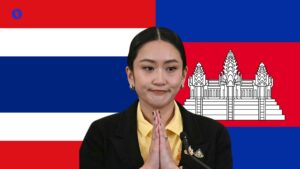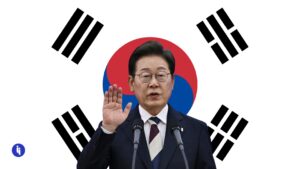Eight UN peacekeepers have been wounded in eastern Democratic Republic of the Congo (DRC) during clashes between ‘M23’ rebels and DRC troops.
Here’s what’s happening.
Part of the story starts next door in Rwanda, where ethnic Hutu extremists perpetrated the 1994 genocide against a million ethnic Tutsis. The conflict and its aftermath led both victims and perpetrators to cross into eastern DRC, where many formed or joined rival armed factions.
Stay on top of your world from inside your inbox.
Subscribe for free today and receive way much more insights.
Trusted by 134,000+ subscribers
No spam. No noise. Unsubscribe any time.
Some 120 of those groups have since been vying for control over the mineral-rich territory, often backed by regional powers looking to gain influence.
And the recurring violence (including two full-scale wars since the 1990s) has killed some six million people and displaced another five million, making it one of the deadliest conflicts in modern history.
One of the main players is M23 (‘March 23 Movement’), which was formed by Tutsi soldiers who split off from the Congolese army after accusing the DRC of failing to uphold a key peace treaty (which had been signed on March 23, 2009). Rwanda has since backed M23, while the DRC has backed rival Hutu militias.
And now, after the collapse of last year’s ceasefire, M23 has pushed to within 25km of the regional capital Goma, where hundreds of thousands of refugees are hunkering down among the city’s 1.5 million peacetime residents.
- M23 forces now control almost all supply routes into Goma
- Government forces don’t seem strong enough to hold them back, and
- The DRC has less outside help, having kicked out a regional force last year, and now booting UN peacekeepers this year.
Meanwhile, the DRC’s spooked (if not opportunistic) neighbours are weighing in to shape events, making the whole situation more complex and combustible:
- 🇷🇼 Rwanda has dismissed US demands that it pull its troops and missile systems back from eastern Congo, insisting it’s protecting itself from DRC-backed Hutu militias that pose a threat to Rwandan Tutsis
- 🇺🇬 Uganda has faced accusations of playing all sides, with alleged ties to M23, an anti-ISIS partnership with DRC, and a simmering rivalry with Rwanda
- 🇧🇮Meanwhile, over 1,000 Burundian troops are covertly deployed in DRC fighting alongside government forces
- 🇿🇦There are also South African troops on the ground there supporting the DRC, with up to 2,900 more troops on their way
- ⚔️ Mercenaries are on the ground too (from France and possibly Russia) providing logistical and other support to DRC forces, and
- 🇧🇪 Belgium is still involved after a 75-year colonial rule that played off Hutu-Tutsi tensions, left ten million dead, and culminated in an admitted role in the 1960 assassination of the DRC’s first prime minister.
So as huge as the DRC is – Africa’s second-largest country, four times the size of France – it still looks awfully crowded with all the above players and their ambitions. And that’s making a broader regional conflict look less remote.
INTRIGUE’S TAKE
There are multiple races now underway around the world, and they’re not all headed in the same direction:
- Everyone is (in theory at least) racing to hit global net zero targets
- The West and China are also racing for world influence, and
- There’s tension here, as the path to net zero currently runs through China’s vast green tech capabilities, which the West is determined to balance.
Today’s story extends that tension further – the path to net zero also runs through critical minerals like cobalt; 70% of the world’s cobalt is located in the DRC; and 80% of the DRC’s cobalt output is controlled by China.
This all offers the possibility of much-needed investment and employment for the DRC and its people, but it also raises the stakes, including for:
- The DRC itself, which has deployed its troops to defend China’s assets
- The DRC’s neighbours, who’ve long profited from mineral smuggling out of DRC, and
- China itself, which has been promising more security aid to the DRC.
Also worth noting:
- DRC President Tshisekedi was just re-elected for a second five-year term, in a December election the opposition branded as a sham.
- A fascinating 2023 book (‘The Lumumba Plot’) looks at America’s role in Prime Minister Lumumba’s assassination during the Cold War.
- M23 co-founder Bosco Ntaganda turned himself in at the US embassy in Rwanda in 2013, requesting a transfer to the International Criminal Court (ICC). The ICC convicted him of war crimes in 2019.








